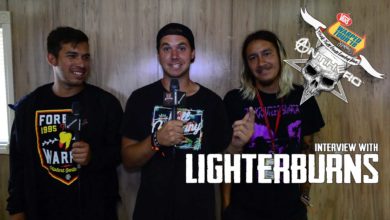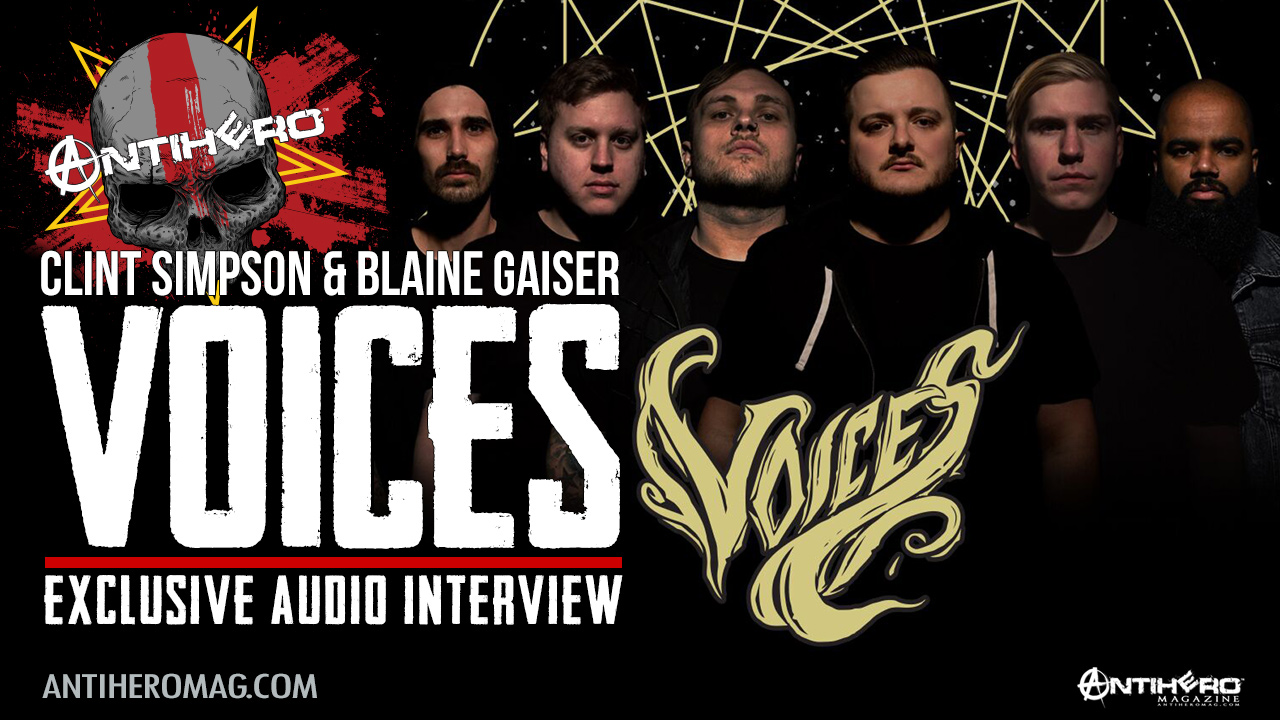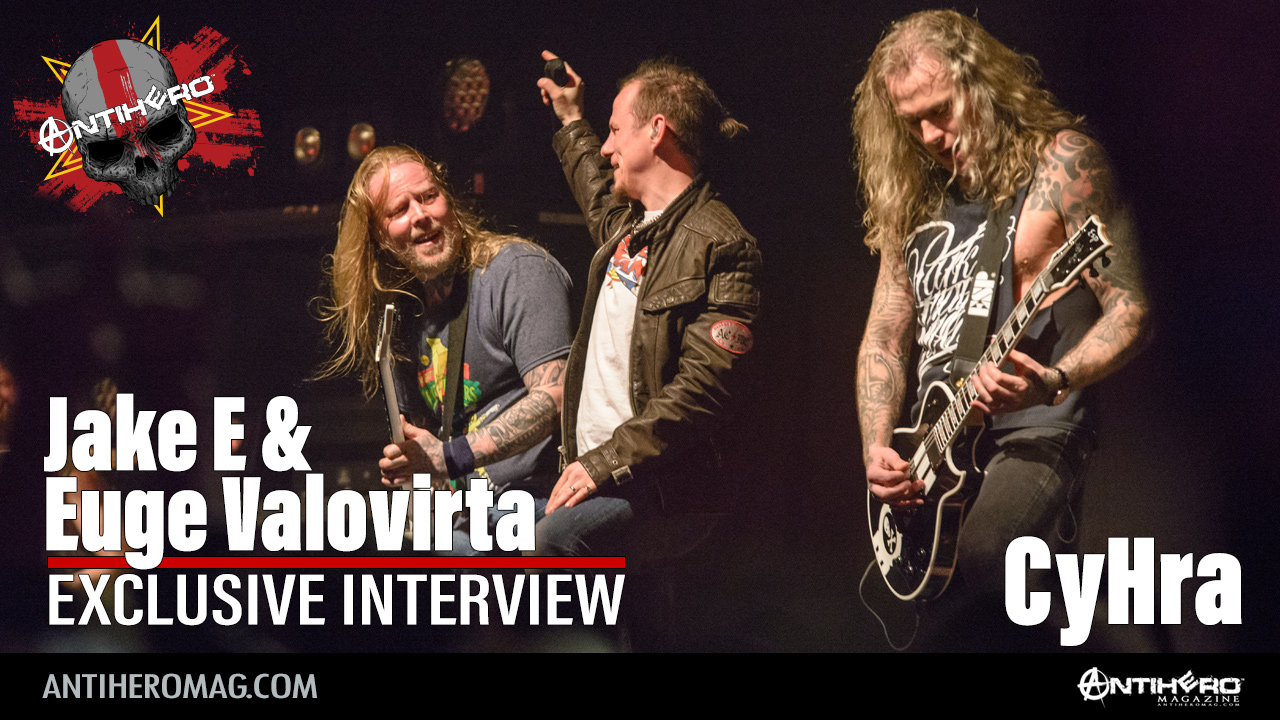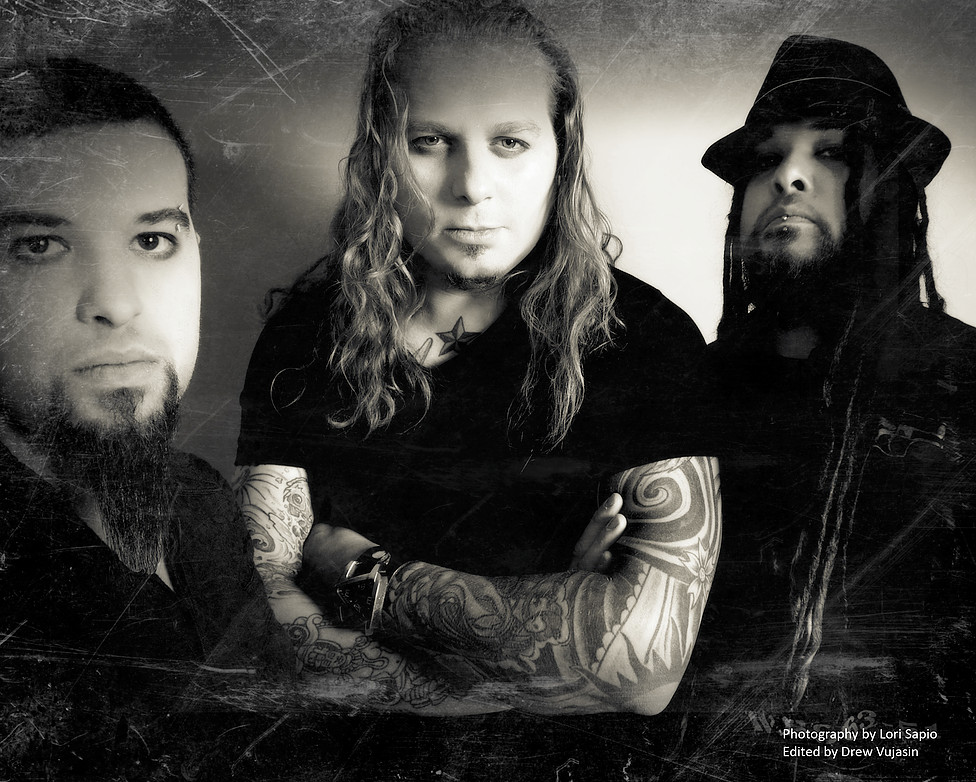ANTIHERO: Congratulations on signing with Metal Blade Records! How has this new partnership influenced your creative process or approach to making music?
Miłosz – It has not and that is how it should be. We stay true to what we do and Metal Blade doesn’t interfere with our processes. Of course it’s exciting to be working with them and it makes things a lot easier for us but our artistic process is the same but now it will hopefully have a wider reach, which we needed. They are very supportive and I’m grateful for that.
ANTIHERO: MORNE’s music often delves into dark and atmospheric themes. Can you tell us about the sources of inspiration for your music and lyrics, especially in your latest work?
Miłosz – The inspirations are always the same. It’s our ability to play our instruments and the way that they direct us. I want our music to develop an emotion in the listener and the lyrics are a personal addition to that. It’s an organic combination of things and I really don’t know how to explain it. We try to play very simple but layered music. Simplicity is what I value in music the most.
ANTIHERO: Post-metal is known for its ability to create intense emotional atmospheres. How do you go about achieving that kind of emotional depth in your compositions?
Miłosz – I think most musical genres can create an intense atmosphere. Post metal or whatever that is, can be very naive sounding too. If it comes straight from the author and is honest it will always have its depth. We are not trying to mimic anything. There wouldn’t be a point in that. We just let it all out and you can hear it on the records.
ANTIHERO: MORNE’s discography is characterized by long, immersive tracks. What is your songwriting process like, and how do you structure your longer pieces to maintain the listener’s interest?
Miłosz – I don’t think longer songs are something unusual. The nature of our riffs and how we structure them creates some atmosphere that people can latch on to. We don’t put a lot of twists and turns in our music. I like when music flows and makes you think and for me personally it has to give me a minute to figure out what’s going on before the riffs change. We just do what we do and it’s a natural process.
ANTIHERO: You’ve described your music as a blend of doom, sludge, and post-metal. How do you navigate the boundaries between these genres, and what unique elements does MORNE bring to the table?
Miłosz – We never intended to put tags on our music. Those labels come mostly from the press or people who try to describe our music. The nature of our music spans across a few genres and I think it applies to a lot of bands. A lot of bands can’t be described with one genre. Honestly, I hate those tags and most of the time I don’t understand what they mean. What’s post-metal? People need it though. It helps them discover new music or buy records and go to shows. We have to work with it.
ANTIHERO: Your albums often have strong thematic and conceptual elements. Can you share some insights into the concepts or stories behind your most recent album, and how these concepts influence the music?
Miłosz – It always starts with a couple of notes, a riff. Nothing too complicated. Then we build around it. This album and previous ones happened in similar ways. Music happens first then I write the words. We add some things and take some things out. With this album, we wanted to follow what we left off on the last one. Heavy guitars and stripped-down riffs. All there is. Simplicity lets you imagine things and if you stop for a second and listen it may make you hear stuff that isn’t necessarily there. At least this is how it works for me and the band reflects that.
ANTIHERO: Post-metal bands often experiment with unusual instruments or sounds. Have you incorporated any unique instruments or sounds into your music that you’d like to highlight?
Miłosz – A lot of bands experiment with things. Weird effects or instruments. I heard fast grind bands with a saxophone which was kind of unusual. We had some violins on our first two albums. It worked in some parts. Nothing crazy. It was where we were at that time. Our last few albums are stripped down to guitars and drums with some occasional keyboards here and there but again nothing too crazy or very audible. We use simple pedals and simple gear. It’s the riff that creates an atmosphere and the rest is most of the time, an unnecessary addition. We let the basic instruments interact with each other and create sounds.
ANTIHERO: MORNE’s music videos are visually stunning and often complement your music effectively. How do you approach the creative process when it comes to creating visuals for your songs?
Miłosz – We only made one video so far and it was for the new album. The label suggested it but we never felt like a video kind of band. Our songs are longer and it’s hard to add visuals to them. A visual aspect that isn’t some cliche lights and a fast edit on a computer. Hillarie Jason, who made the video, and I had a lot of discussions about how to approach it. We work closely on the visual aspects of the band but this was new for both of us. It had to follow the “minimal” look of the band and she pulled it off. It worked.
ANTIHERO: The metal genre has evolved significantly over the years. How do you see MORNE contributing to the evolution of post-metal, and what trends or directions do you foresee in the genre’s future?
Miłosz – We do not try to contribute to anything. It’s the opposite I’d say. What we do is a pure self-centered release of our passion and emotions. Like I said I don’t really know what post metal is. It’s a type of music. That I get, but it doesn’t make a lot of sense to me. So many bands that are completely different from each other were put into the same post-metal basket. You know what I mean? It’s confusing. I don’t navigate around musical genres. How people take our music is purely up to them. I think bands should stop trying to be a part of something and evolve into something that is only theirs.
ANTIHERO: Environmental and social issues are often present in post-metal music. Are there specific causes or issues that MORNE feels strongly about and seeks to address through your art?
Miłosz – I try not to involve politics in our music, at least in any direct and obvious way. My lyrics are my observations put on paper and they aren’t political statements. I’m not a preacher. There is a lot of shit that humanity needs to figure out but I don’t necessarily feel that shouting some slogans is what we wanna do. I focus on more personal and often not very direct stuff. As people, we stand against human rights abuse, animal abuse, and fucking totalitarian systems and I want to make that very clear!
ANTIHERO: MORNE’s music often incorporates a sense of melancholy and introspection. Can you share the emotions or experiences that drive your songwriting and the overall atmosphere you aim to create with your music?
Miłosz – A lot of that stuff is personal but I feel that any music should have some sort of emotional impact on whoever receives it. For me releasing that emotion and translating it into notes, riffs and songs feels very natural and I don’t really know how to describe it. It just happens. I don’t have a blueprint or a manual on how to make that happen.
ANTIHERO: MORNE has been active for quite some time. How do you see the band’s sound and goals evolving in the future, especially now that you’re signed with Metal Blade Records?
Miłosz – We will keep doing our own thing. It will move, it will shift, it will evolve but it won’t change its character. We have a bigger outlet now that is supporting us. Let’s see what the future holds.
ANTIHERO: Collaboration is an important aspect of many post-metal bands. Have you worked with any guest musicians or artists that have had a significant impact on your sound?
Miłosz – We have worked with some guests but that was long ago. Over the years I came to a realization that this shit is too personal for me and it’s hard to have any contributors. It’s hard to put it in someone else’s hands. But who knows what will happen next. The four of us and our visual artist are creating it. It works for us.
ANTIHERO: MORNE’s lyrics often touch on deep and introspective themes. What are some of the key themes you explore in your lyrics, and how do they connect to the music you create?
Miłosz – My lyrics are my personal take on my surroundings and I try not to comment on them. I let people read them and interpret them however they want.
ANTIHERO: MORNE has a reputation for captivating live performances. Can you describe the unique aspects of your live shows, and how do you translate the studio sound into a compelling live experience?
Miłosz – I don’t think our live performances are unusual. We try to play as well as we can and create the set lists so they flow well. We keep it simple. Live performances are very important to us but we don’t do anything unusual. Our studio albums are fairly simple so it’s easy for us to translate them into a live show.
ANTIHERO: Recently signing with Metal Blade Records is a significant milestone. Can you share the story behind the signing and your expectations for the partnership in terms of your future releases and career?
Miłosz – Metal Blade signing came to us a little bit unexpectedly. Our friends introduced our band to them because they thought we needed a bigger label to back us up. Over the years we received a few offers from bigger-sized labels but it never worked for us so we never really pushed it. We found out that few people from Metal Blade knew us and followed us over the years and it made sense to us to go with them. They have a wider range which we needed. We will see how it goes. So far they have been very helpful and good to us and we as always will work hard to not disappoint them or our audience.
ANTIHERO: Many of your songs have extended and immersive structures. How do you balance the desire for musical exploration with the need to keep listeners engaged and connected to the music?
Miłosz – To me, the most important thing in song creation is the flow. The riffs have to tell the story and they have to transition smoothly from one to another so everything creates a domino effect. Our approach is very organic and natural. People who listen to this type of stuff will understand where we are coming from.
ANTIHERO: The visual aspect of your album artwork and live visuals is striking and adds depth to your music. How do you approach the visual side of MORNE, and what connections do you see between the visuals and your music?
Miłosz – I have a degree in photography and photography was always part of my life. I don’t take a lot of photos anymore but I value good photography and good simple design. In Morne I try to make our album covers look like they are not directly related to the music and sometimes even misleading. It has to make sense but doesn’t necessarily have to follow some genre guidelines. The look, the aesthetic are very important and it has to stand on its own. We have been working with our friend Hillarie Jason who is a great photographer and understands our approach and helps us create that look. Meaningful but not direct.
ANTIHERO: Your music often includes elements of doom, sludge, and post-rock, making it difficult to classify within a single genre. How does the band view its own genre and what influences are most prominent in your work?
Miłosz – Worrying about what genre we belong to is the last thing we want to do. In many previous interviews, I mentioned bands like Amebix or Misery to have had a big impact on me. I always operated in a punk scene and anywhere around it. Those bands don’t necessarily sound punk per se but the simplicity in their music and boldness was a big thing for me. Same with some other punk or crust bands. We don’t sound anything like them but that’s not the point here. You can be influenced in many different ways and the important thing is while being influenced, to do your own thing. The four of us listen to a lot of different styles and it shows here and there within the band.
ANTIHERO: Finally, to wrap up, what’s one thing about MORNE that you’d like your listeners and fans to know, that they might not find in a typical band bio or interview?
Miłosz – People should listen to our music if they will and create the feeling themselves. What we do is ours but how people take it and digest it is theirs.







